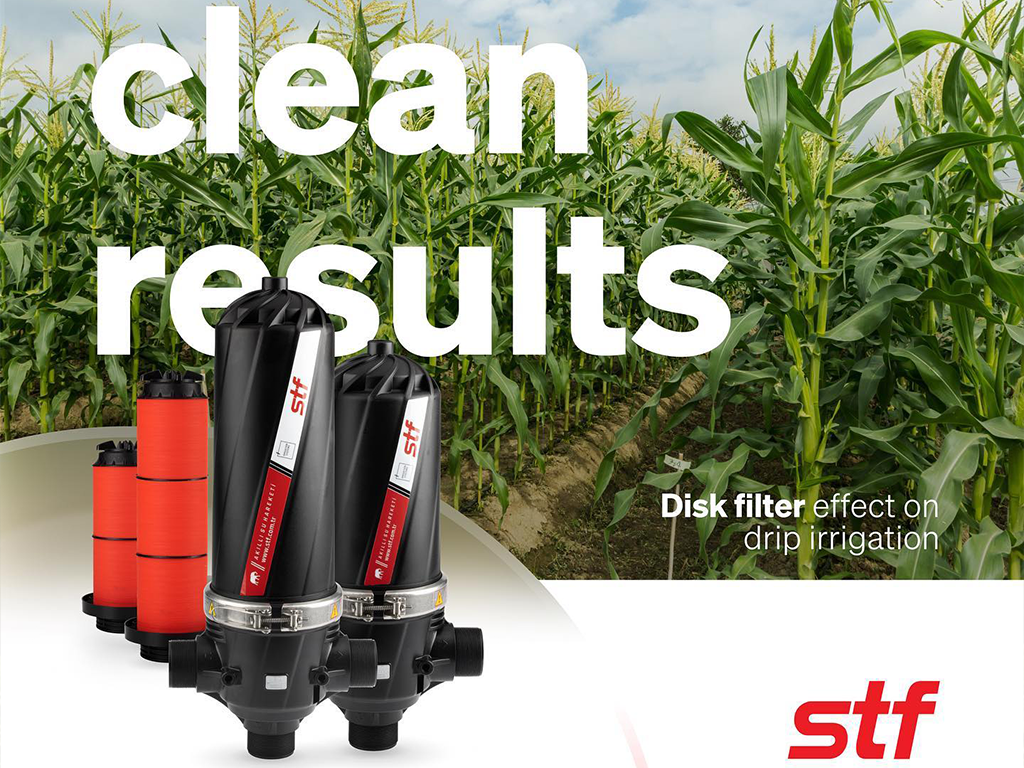
Plastic Filters
Clean Water for Maximum Irrigation Efficiency
In agricultural production, the quality of water used directly affects system performance and crop productivity. Especially in drip irrigation and sprinkler irrigation systems, water often contains sand, algae, sediment, and other particles that can clog nozzles, emitters, and other sensitive components. To ensure uninterrupted operation and system efficiency, the water must be filtered. One of the most effective solutions for this is the use of plastic filters.
Lightweight, durable, and highly versatile, plastic filters have become indispensable components of modern irrigation infrastructure.
What Is a Plastic Filter?
A plastic filter is a filtration unit made of UV-resistant polymer materials, designed to remove particles from irrigation water at specific micron levels. Before the water enters the system, it passes through a filter screen or cartridge that traps debris, allowing only clean water to flow through.
Plastic filters are compatible with both drip irrigation and sprinkler systems, helping to ensure clean water reaches plants while protecting the longevity of system components.
Types of Plastic Filters
1. Manual Plastic Filters
These filters are commonly used in small to mid-size irrigation setups. They contain removable filter elements that must be cleaned manually. Cost-effective and easy to install, they’re ideal for farms or greenhouses with moderate filtration needs.
2. Backflush (Self-Cleaning) Plastic Filters
Backflush filters are designed for larger agricultural operations where frequent cleaning is not practical. These filters allow water to reverse flow for automatic or semi-automatic cleaning, saving time and labor while maintaining performance.
3. Inline Mini Plastic Filters
Compact and efficient, these filters are ideal for tight spaces and low-flow lines such as in greenhouses, flower beds, and micro-irrigation zones. They are easy to install and maintain.
Key Advantages of Plastic Filters
Prevent Clogging
Filters block particles that could otherwise clog emitters, nozzles, and sprink heads. This maintains even water distribution and avoids crop stress due to under-irrigation.
Extend System Life
Preventing sediment buildup helps reduce internal wear and tear, thereby extending the life of irrigation components.
Increase Water Efficiency
Filtered water flows more consistently and at the correct pressure, improving irrigation precision and reducing waste.
Save Time and Labor
Backflush models eliminate the need for dismantling during cleaning, streamlining system maintenance.
Broad Compatibility
Plastic filters are adaptable to both drip and sprinkler systems, fitting a wide range of pressures and flow rates.
Use of Plastic Filters in Drip Irrigation Systems
Drip irrigation systems deliver water directly to plant roots through low-pressure emitters. However, these emitters are highly sensitive to clogging, especially when unfiltered water is used. Even small particles can cause uneven distribution or full blockage of individual lines.
By integrating plastic filters into the system, such issues are prevented. Additionally, if liquid fertilizers (fertigation) are used, filters help prevent undissolved particles from clogging emitters.
Use of Plastic Filters in Sprinkler Systems
Sprinkler irrigation systems rely on pressurized water to cover large surface areas with rotating or fixed sprinkler heads. These heads can easily become blocked if the water contains impurities, disrupting uniform coverage and lowering efficiency.
Unfiltered water can also accelerate corrosion of internal metal parts or damage nozzle surfaces. Plastic filters protect the system by ensuring only clean water reaches the sprinklers, supporting consistent performance across the entire field.
STF Plastic Filter Solutions
STF offers a wide range of plastic filter products tailored to meet the diverse needs of farmers and irrigation professionals. STF filters are:
- Made from durable, UV- and chemical-resistant plastic
- Available in various micron ratings (typically 120–200 microns)
- Offered in both manual and backflush models
- Easy to integrate with PE piping systems
- Compatible with both drip and sprink irrigation setups
STF’s plastic filters are trusted in fields, greenhouses, and large agricultural operations across Turkey and beyond.
Conclusion
Plastic filters are not just accessories — they are vital components of any reliable irrigation system. They prevent clogging, extend equipment lifespan, maintain irrigation balance, and help reduce water and energy consumption.
Whether you’re using drip irrigation or sprinkler systems, unfiltered water poses risks that could lead to system failure and crop loss. Choosing a high-quality plastic filter is an investment in your irrigation efficiency and the long-term sustainability of your farming operation.
With STF’s advanced plastic filter solutions, you can protect your system, use water more efficiently, and improve overall crop productivity.

